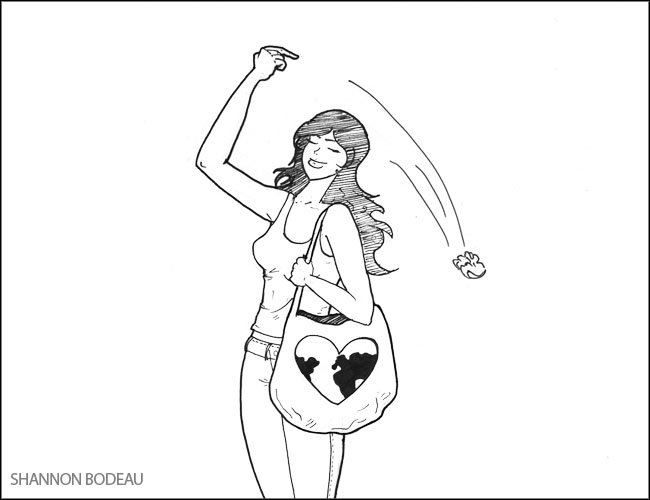
Warm my heart, not my planet. There is no Planet B. Earth needs you. These empowering slogans, among others, are commonly seen embellished across shirts, reusable water bottles, and bumper stickers with the goal of promoting green awareness in the young population. However, these products are plagued with contradictions—shirts are often made of cotton, one of the most pesticide intensive crops, and eco-friendly stickers are often plastered to gas-guzzling cars. Although teenagers are a huge part of the green movement, they don’t always realize its reality.
Current leader of both the Environmental Impact Committee and Recycling Club at Aragon, junior Tammy Ng says, “The going green trend is a great thing, I think. I just hope that more people take it seriously.”
Ng notices that although many Aragon students recycle, there is often trash in the recycling bins around campus. Unfortunately, throwing a piece of trash into a recycling bin creates the risk of having the entire batch of recyclables moved to the nearest trash dump.
However, many are attracted to the eco-friendly community.
Former Aragon student and environmental activist Jason Bade says, “If it gets people to do the right thing, don’t look at the motive; look at the result.” Getting the right result is the difficult part. It may be popular to participate in the social trend, but those who actually contribute to improving environmental conditions are rare.
Sophomore Max Herrera says, “There isn’t enough motivation because not enough people are aware of how easily students can help by just using a reusable water bottle.”
In the United States alone, 246 billion pounds of plastic are used to produce plastic water bottles per year. This amount of plastic production emits 3.2 million pounds of greenhouse gases into the atmosphere, contributing to global warming. If this continues, the pristine springs and majestic alpine mountains depicted on plastic water bottle labels will no longer exist.
Luckily, many Aragon students have adopted eco-friendly habits. Junior Connor Ching notices, “There are a lot of people who recycle and whose actions influence others to catch onto the green trend.”
“I have been using reusable water bottles, and I only wash my PE clothes once a week,” freshman Vito Gano says. “I also recycle at my house and always put raw materials in a separate bag for composting,” he adds.
Sophomore Quinn Bredl says, “I love recycling, I hate litterbugs, and I compost regularly.”
Not everyone can be an adamant green activist, but many recognize room for improvement. Junior Angela Hung says, “I always forget to turn off my lights in my room when I leave, but I realize that this is a habit that I can easily fix and it’s one I am willing to change.”
Although some recognize these necessary changes, the problem of authenticity remains. The green movement may be a social trend, but its popularity shouldn’t overshadow its importance to environmental change.
Bade says, “Salespeople take advantage of that sort of thing, and people don’t really care because if they can be seen buying produce at the farmer’s market or driving a Prius that is all that matters. Once you become aware…it will become hard to ignore. You will want to engage in greener methods… and make a difference on Earth.”



